The 11 Best Fish Oil Supplements
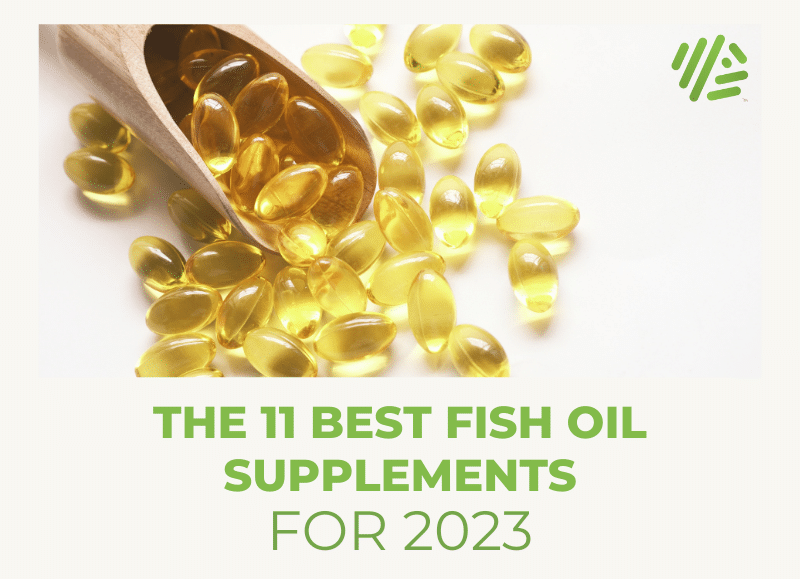
Contents
The supplement world can be a tricky place to navigate. You want to do the right thing for your health, but who can you trust?
The fact is that many omega3 supplements don’t contain the ingredients they say they do, and nowhere is the playing field more murky than with fish oil.
Fish oil is one of those “run of the mill” supplements that even doctors recommend for their patients. Millions of Americans take it, and in some cases, this improves their health, however, not all fish oil is created equal. In fact, some large brands sell jars of fish oil that would be labeled as harmful if the true ingredients were known to consumers.
See also: Why fish oil supplement benefits may hinge on genetics
How common are fish oil impurities?
Consider these statistics:
Over 70% of fish oil supplements do not contain the levels of EPA or DHA stated on the label.1
This study found that a quarter of omega-3 fish oil supplements tested had high levels of oxidized (harmful) lipids.2
High levels of oxidized lipids, an indication of lipid decomposition, were found in over 80% of more than 35 fish oil supplements from New Zealand, with only 8% meeting international standards.3 50% of Canadian fish oil contains oxidized lipids.4
This study found that omega-3 fish oil products from three of the largest fish oil brands in the US were full of oxidized lipids, toxins and saturated fats. Yes, saturated fats in fish oil!
Suffice to say, oxidized lipids are not a good thing. Rather than protecting heart health, as fish oil supplements are supposed to do, they can do damage:
oxidized lipids have demonstrated negative effects on atherogenic lipids and other biomarkers of cardiovascular disease and may be predictive of clinical events in patients with cardiovascular risk or disease.
Bottom line: the fish oil industry has a big problem. There are serious impurities in many of the top selling brands on the market.
If you’re still set on supplementing with fish oil, the rest of this post will be devoted to strategies you and your family can use to ensure that your fish oil supplement is good quality.
What to look for in a good fish oil product
These are the four most important factors in choosing a good fish oil.
Purity
Look for oils that are either EuroFins- or IFOS-compliant. These European labs operate under standards much higher than even the United States Pharmacopeia (USP), testing for a number of additional contaminants ensuring your fish oil is of the highest quality. The easiest way to verify the purity of your fish oil is to ask the manufacturer for a Certificate of Analysis (COA) for your specific batch. Any legitimate manufacturer should be able to provide a batch-specific COA. This will tell you the exact content of not only EPA and DHA (the good stuff) as well as levels of oxidation (Peroxide Value), heavy metals, and any potential bad bugs (E.coli, staph, salmonella, yeast, and mold).
Freshness
The easiest way (not always the most pleasant) to determine the freshness of your oil is a simple “bite test.” A high-quality, fresh oil will be relatively free of any fishy tastes or smells. The oil should also be relatively translucent, free of any cloudiness or “floaters.”
Form
There are currently four (4) primary forms of omega-3s available in supplemental delivery. This is a source of a lot of confusion for consumers looking for the most bioavailable omega-3 oil. Omega-3s occur naturally in the triglyceride form so it would make sense to supplement in this form as well and the nutritional sciences suggest just that. There is a cheaper, faster manufacturing process that yields what is called an ethyl ester (EE). This semi-synthetic form of omega-3s contains an ethanol backbone that have shown difficulties in both absorption and bioavailability (how well it is incorporated into cell membranes). A large majority of fish oil is in the EE form. Products that contain the triglyceride form will list this somewhere on the bottle while an ethyl ester might be listed as something along the lines of “marine oil concentrate.” Other forms include phospholipids (sub-therapeutically dosed capsules) and monoglycerides (expensive, lack human clinical data). These last (2) forms are driven more heavily by marketing then they are actual science, further contributing to the confusion.
Potency
Lastly, check to see the actual content of EPA and DHA, the therapeutic components of omega-3 fatty acids. Many companies will attempt to deceive consumers by boosting amount of omega-3s but when you look at the supplement facts box you find a fairly low content of EPA and DHA. Ideally, a product should contain close to a gram of a balanced mix of EPA and DHA. Therapeutic ranges fall anywhere between 1 and 6 grams per day depending on clinical conditions. For compliance reasons, the fewer capsules someone has to take the more likely they are to stay complaint and reap the well documented benefits of fish oil supplementation.
Finding the best omega 3 supplement: Fish oil reviews
Amber, our resident food and supplement tester of vegan egg fame, took the reins for these tests.
OK, so our interview gave us some criteria to use in separating the fish oil wheat from the fish oil chaff. We know you’re busy, so we went ahead and evaluated some of the top brands on Amazon and gave our analysis in the notes that follow.
#1. Rosita Cod Liver Oil
This is a new addition for us that has been making the rounds on many integrative health blogs, and after a taste test, I can see why it’s becoming so popular. The taste is the freshest I have encountered. The flavor profile on this is reminiscent of a good quality salmon roe at a high end sushi restaurant, you can taste and smell the purity. The Rosita product also offers a natural source of Vitamin D and K, which is great for someone like me whose VDR genes don’t allow for high doses of vitamin D in supplement form. Then, you have the fact that the product comes available in liquid rather than capsule form, which allows for controlled dosing. I’m not always a fish oil guy, but when I do take it, I find I do best with smaller, staggered doses. I don’t necessarily want the full dose offered in the capsule products.
1 tablespoon of the Rosita product gives 605mg of DHA and 443mg of EPA.
The fish is sourced from wild caught fish off the coast of Norway. They have an entire page on their website devoted to testing and transparency and the results are impressive.
Gene Food Rating: A+
#2. Nordic Naturals ProOmega-D
This product came on our radar after doing research on the cognitive benefits of fish oil, specifically in those who have suffered from traumatic brain injury. The EPA/DHA content, as well as overall Omega 3 amounts, mirror the Ultimate Omega product, which we also love, however, the ProOmega-D has been used in clinical settings to treat patients with brain injury. ProOmega-D is considered the “professional version” of Ultimate Omega. You can read the case study of the patient who used ProOmega-D to aid recovery after a serious head injury here. As with all Nordic Naturals products, ProOmega verifies potency, freshness, and purity with a certificate of analysis for each batch and bottle of its fish oil products.
Gene Food Rating: A
#3. Nordic Naturals Ultimate Omega
The Nordic Naturals Ultimate Omega fish oil product has one of the highest amounts of EPA/DHA per serving of all products reviewed, which is a big plus. But one of the best things Nordic Naturals has going for it — and why it ranks so high in a few spots on this list — are its Certificates of Analysis being made so easily available. Nordic Naturals offers Certificates of Analysis for all its omega-3 products, verifying potency, purity, freshness, non-GMO, sustainability, and no radionuclide activity. We have an example below of how to find your lot number on a Nordic Naturals bottle (right by the expiration date), as well as what a typical Certificate of Analysis looks like.
Once you’ve got your lot number, head to Nordic Naturals’ website to enter and obtain your Certificate of Analysis for that batch. You should expect your lot number to contain its bottling date/expiration date on a Certificate of Analysis and amounts of environmental toxins, heavy metals, and oxidation that are lower than standard. This example is from another Nordic Naturals product, which we review directly after this one.
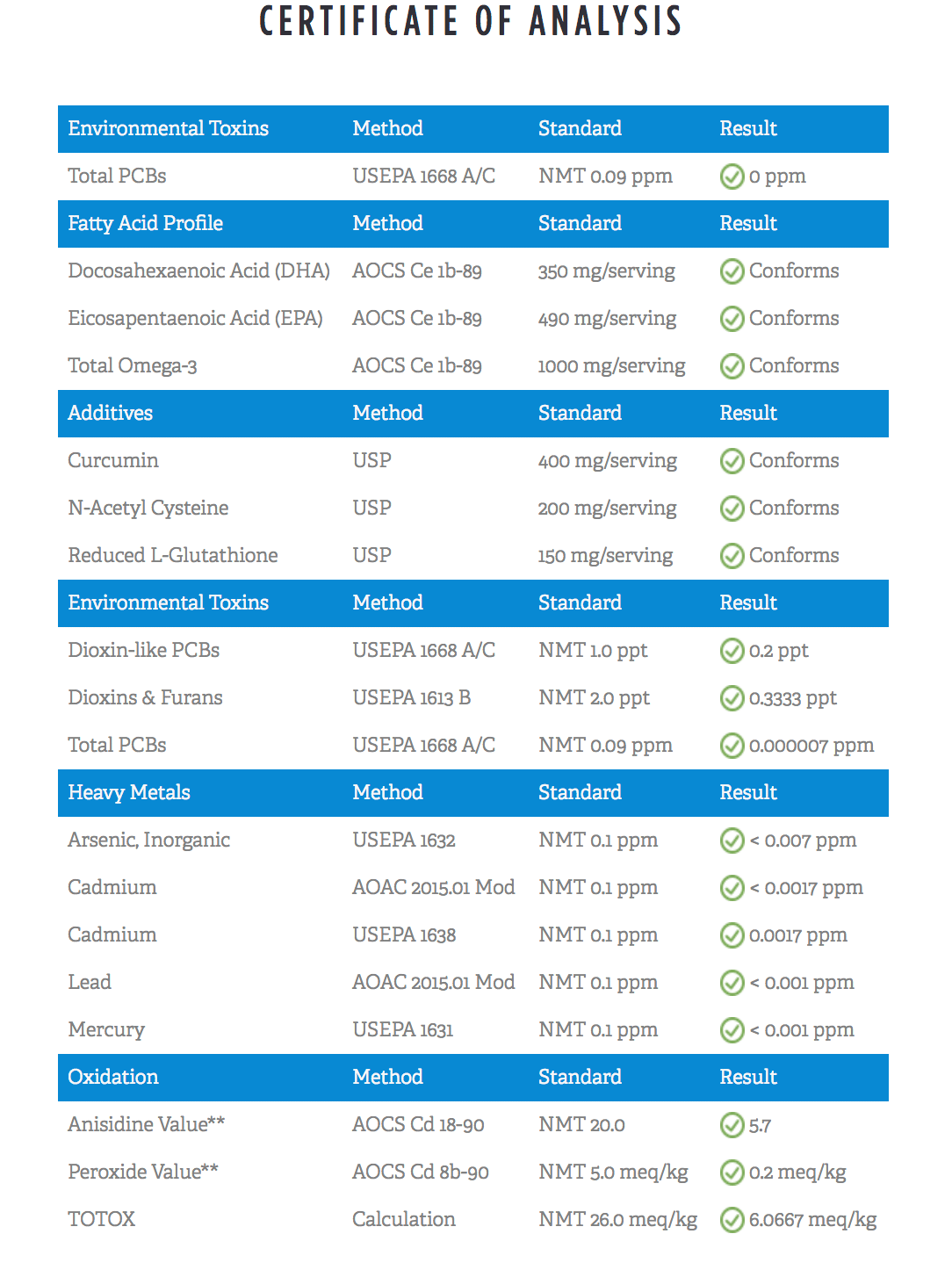
Gene Food rating: A
As open about its purity and potency as Nordic Naturals seems to be, we would love for them to be IFOS-certified. While none of the Nordic Naturals fish oil products we reviewed are on Labdoor, the following omega-3 products from the company received excellent or good scores there: Nordic Naturals Algae Omega (vegan, 97.9/100 Labdoor score), Nordic Naturals Prenatal DHA (74.5), and Nordic Naturals Ultimate Omega D-3 (73.8).
#4. Nordic Naturals Omega Curcumin
Omega Curcumin is a fish oil blend that adds curcumin, N-acetyl-cysteine, and glutathione to the usual Nordic Naturals formula. If you’re looking for an added anti-inflammatory benefit from your omega-3 supplement, this is a good choice to consider. Both glutathione and curcumin are difficult to absorb due to low bioavailability, which is why you often see them added to liposomal preparations. The problem with these liposomal products is they encase the nutrients in what are often unhealthy fats that are high in omega-6 fatty acids. By encasing glutathione and curcumin in omega-3 fats, bioavailability is increased without the need to use cheaper phospholipids that can raise TMAO and other inflammatory markers.
Gene Food rating: A-
The doses of all additional ingredients are well balanced. The 400 mg of curcumin is a good therapeutic dose, while the 150 mg of glutathione and 200 mg of NAC are good starter doses for most people. Our particular lot number was bottled in October 2017 with an October 2019 expiration date, with amounts of environmental toxins, heavy metals, and oxidation that were lower than standard. We would, however, love for Nordic Naturals products to be IFOS-certified. While this Nordic Naturals fish oil (and the other one mentioned in this post) aren’t on Labdoor, other Nordic Naturals fish oils received decent scores there.
#5. Carlson the “Very Finest” Fish Oil
The Carlson brand of fish oil instructs its users to take two soft gels that total 700 mg when taken together at mealtime. Carlson boasts a special concentrate of Norwegian fish body oils from deep, cold-water fish (anchovy, sardine, and mackerel), with purity guaranteed by an independent FDA-registered lab.
Gene Food rating: B+
We really like the 5-star IFOS rating, plus the clearly labeled triglyceride form (not many brands disclose the form of their fish oil on nutrition labels). The capsule itself is the only one with an actual taste on the outside — sweet, most likely from the glycerin — which can be a little off-putting for some, but probably helpful if you’re knocking back five of these a day. We’re only giving this one a slightly lower rating because its Labdoor score is middle-of-the-pack.
#6. Orthomega 820 Capsules
Orthomega has the highest concentration of EPA and DHA per softgel (and is the most expensive at nearly $1 each pill), yet the recommended serving is just one softgel per day. If you went with the Dr. Tobias brand, you’re looking at a similar amount of EPA/DHA per softgel, but double the amount ingested daily if you follow Dr. Tobias’ recommendations. Orthomega also just uses anchovy for its fish oil while all other brands have some combination of fish; it also contains rosemary extract in its antioxidant blend.
Gene Food rating: B+
This one is pretty pricey, but has a good taste and a nice amount of EPA/DHA. Still, we’d like to see an IFOS/Labdoor review.
#7. Dr. Tobias Triple-Strength Omega 3 Fish Oil
Dr. Tobias’ Triple-Strength brand of fish oil is a best-seller, containing herring, anchovy, sardine, salmon, and mackerel (in addition to soy — good to know if you’re allergic or have sensitivities). Suggested serving is two 1,000-mg softgels taken daily with meals. Tested and certified by a third-party lab and purified with molecular distillation, this fish oil contains 800 mg EPA and 600 mg DHA per two-softgel serving.
Gene Food rating: B
We like the idea of triple-strength and the value of a pretty good fish oil concentration of EPA/DHA for your buck. It also ranks a bit higher than other brands on Labdoor.
#8. Nordic Naturals Omega-3
This was the only brand tested that wasn’t a softgel. Instead, you’ll take one cold, refrigerated teaspoon daily (1,560 mg) with food, if you dare. Luckily, it’s easier than expected, and Nordic Naturals delivers a whopping 745 mg EPA and 500 mg DHA per single teaspoon of purified deep sea fish oil from anchovies and sardines. Certificates of Analysis also are available upon request.
Gene Food rating: B
This was our favorite, in terms of taste and ease of use, in addition to the amount of EPA/DHA per serving, was a winner. However, for those concerned about saturated fat, the liquid form of this Nordic Naturals product contains 8% of your daily recommended amount of saturated fat (whereas other fish oil brands contain between 1%-3%, typically).
#9. NOW Ultra Omega 3 Fish Oil
The nice thing about NOW Ultra Omega 3 is you only need to take one softgel per day (but can take two). It also has one of the higher amounts of EPA in this list, but on the low end of DHA. This brand also uses the lower-quality form of fish oil as concentrate rather than triglyceride. Its biggest benefit is the highest Labdoor score of all the fish oil brands we included in our taste test.
Gene Food rating: B-
We like that NOW Foods is a family owned company and were impressed by the Labdoor score, but like many other brands here, hoped for an IFOS-compliant product. We also prefer triglyceride form of fish oil over the cheaper EE, any day of the week.
#10. Kirkland Signature Fish Oil
Kirkland Signature is a big brand you’ll find at Costco, and if you’re a regular fish oil customer, you may lean toward this brand based on quantity vs. cost — just 6 cents a day for this supplement. Instructions are to take 1 softgel (containing mackerel, anchovy, menhaden, herring, and sardine) two times daily, in which you’ll get about 500 mg of EPA/DHA total per day. The problem is, Kirkland does not offer a distinction of EPA or DHA amounts on its nutrition label.
Gene Food rating: C-
The low price tag on this one is a convincing argument, but it has the lowest Labdoor score of all brands tested and no IFOS rating, in addition to lower levels of EPA/DHA than some competitors.
#11. Nature Made Burp-less Fish Oil
Nature Made is one of the more popular commercial brands of supplements. Their Burp-less Fish Oil contains anchovy and sardine, with a suggested serving size of two softgels daily with meals. The oil’s country of origin is Peru, but it is encapsulated and quality tested in the U.S. Like Kirkland, Nature Made does not offer a distinction between EPA and DHA levels in its product.
Gene Food rating: D
We’re not a huge fan of the taste, nor the form (EE) of this fish oil. It’s on the lower end of Labdoor scores, as well, and has no IFOS rating, plus low EPA/DHA concentration.
Fish Oil Quality FAQ
What better way to understand the ins and outs of the fish oil world than to interview an insider. To get the inside scoop on what to look for in a fish oil supplement, I interviewed a friend who works at a high end supplement manufacturer. My intention here is to give you the real deal as to how “the sausage is made,” and then some actionable tips for finding a good brand.
I think we could see some marketing pushes for different technologies focused on bioavailability of omega-3s. Something that has made an impact in the medical world over the last year, I’ll reserve my comments on its clinical relevance, are Omega 3s in the monoglyceride form. While there has been no published data on the raw material, the idea is that these “predigested” fats are better absorbed than the more common ethyl ester, thus similar benefits can be expected with less oil. We could also see some of self-emulsifying technologies you would generally see utilized in lipophilic pharmaceuticals applied to your fish oil products. In my opinion, until we see these technologies backed up by good studies, consumers would be best served being directed towards a high quality oil in the re-esterified triglyceride form (like we list below).
A large majority of fish oil used to create marine-derived omega-3s come from small, fatty fishes like: sardines, mackerel and anchovies. Other sources include: tuna, cod, salmon, herring among a few others.
This can vary greatly from brand to brand. While actual “catch to capsule” timeframes are difficult to track down, it is speculated that the industry average is 2-3 years. That would mean, a large majority of the fish oil products sitting on the retail shelves contain the oil from fish were harvested in 2014-15.
That is difficult to say … being that the fish oil industry has now been going strong for several decades, many of the quality control issues that once existed such as heavy metal contamination, toxins (pesticides) and oxidation are rare today. There are several organizations, like The Global Organization for EPA and DHA (GOED) and The Council of Responsible Nutrition (CRN), that have developed standards for fish oil products that set specific limits for heavy metals, a wide variety of pollutants and oxidation limits. With that being said, there have absolutely been instances of unacceptable levels of these contaminates being found in products in the retail setting. Note: When I clicked through to the GOED website, most of the links to members were broken, and General Mills was listed as a member, so caveat emptor.
This is probably one of the most misunderstood steps in the manufacturing process. The idea that heat used in the distillation process oxidizes the oil is completely unfounded. The “crude” fish oil goes through a careful multistep molecular distillation and filtration process where the crude oil is refined down to an omega-3 concentrate free of heavy metals and contaminants. During the molecular distillation the oil is exposed to low heat in a vacuum setting, no oxygen is present during this step that could potentially lead to oxidization of the oil. This necessary step removes many of the undesirable free fatty acids and contaminates present and concentrates the oil down to the desired EPA and DHA content.
Krill oil delivers EPA and DHA in the phospholipid form. Based on this, companies have made and continue to make the “superior bioavailability” claim while having no long term data to back up those claims. The studies leveraged by these companies are generally poorly designed, utilize different dosages, do not specify forms, wrong outcome measures, single dose, etc. The only study, that I know of, that compared equal dosages of EPA/DHA as Krill oil and Fish Oil (TG form) found nearly identical increases in Red Blood Cell concentrations over a (28) day period. While the studied dose (1.3 g) can easily be obtained in (2) fish oil capsules, it would take more than (18) OmegaRed krill oil capsules to reach the dose. As it currently stands, krill oil is simply not an economical way to get your EPA/DHA.
Key takeaways on the best fish oil
As you could have guessed by combing through the impurity stats we cited at the outset, there is a wide disparity in the quality of fish oil products on the market today. Most are garbage. If you’re planning on including fish oil in your supplement regimen, it is crucially important to do your homework so you know exactly what you’re getting. Many popular brands do more harm than good. Hopefully this review and “taste test” will help you find a good quality omega-3 supplement.

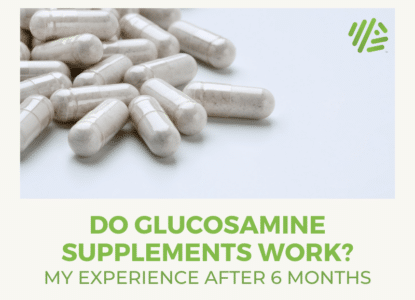
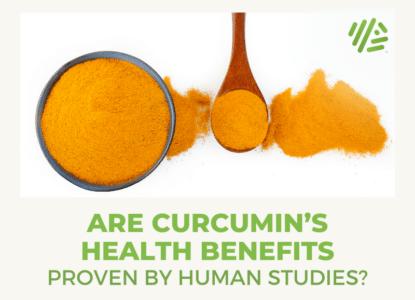
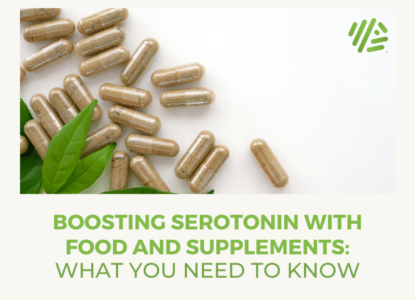
Wg=hat about “Green Pastures” fermented Cod Liver Oil?
I am a cancer patient for second time. Desperately looking for an omega 3 fish oil that does not contain any soy. Please advise.
Jon,
What was it about Noric Naturals that made it an A rather than an A+? I can’t tell by your comparison. Thanks!
Amway Nutrilite Omega 3 is not found here. Does that mean Kirkland is better than Amway?
He haS TAKEN THE BRANDS FROM AMAZON ALONE
Labdoor’s analysis is rigorous and they rank WHC’s UnoCardio 1000 #1 for quality. Have done for four years running.
so.. how much were you payed for this ?
Great article! I was looking for some scientific info before I purchase this supplement and this gave me everything I needed. Thank you!
For many years I was taking either a cod liver oil or a halibut liver oil capsule daily. This was in the hope it would help with a skin complaint allergy. During that time I was trying to find a way to increase my energy levels, trying to pinpoint a food or drink that could be causing it. Six months ago I had a blood pressure test which indicated that it was low. I did some research on the web to find out what caused low bld pressure. The answer to my surprise: fish oil.
Since cutting out my fish oil supplement I no longer feel lethargic.
Interesting, don’t you agree?
According to consumerlab, a 3rd party independent lab testing company, Kirkland Signature fish oil is one of their top picks. Even though it is less concentrated than others it was still the lowest cost when based on cost per 100mg EPA+DHA. This is also an advantage not a disadvantage since it leaves room for omega 3s other than EPA/DHA that are likely to have a beneficial effect. Here is the test result per capsule:
154mg EPA
110mg DHA
21mg DPA
102mg Omega 7 (75% palmitoleic acid)
They also passed the test for purity and contaminants.
And the assumed form is triglyceride based on what the test found since they did not label this, so better absorbed than the ethyl ester form.
So, are they less concentrated? Yes. So what, I just take 10 a day. Still cheaper than any other, still has everything they need plus more (other beneficial compounds) and in the better form. Winning!
Have you evaluated Extend Life from New Zealand?
Thank you for your article. Is there a fish oil you would recommend with a 3:1 or 4:1 ratio EPA to DHA? I have been reading that this ratio may be best for ADD/ADHD. Thank you.
Your chart is inconsistent and misleading. If you are going by serving, you listed Nordic Naturals – ProOmega D as having 650 mg EPA and 450 mg DHA for 2 softgels, but you listed Dr Tobias Omega 3 Fish Oil Triple Strength as having 400 mg EPA and 300 mg DHA but that’s for 1 softgel. One serving (2 softgels) of Dr Tobias is actually 800 mg EPA and 600 mg DHA. That makes Dr Tobias more potent than Nordic Naturals, at half the price.
Thanks for the comment Jason, we will look into this.
Hi, what about Life Extension brand’s Super Omega-3? It has a 5-star IFOS rating and lists EPA, DHA, and Typical DPA separtely on the label. It’s not even rated in your study? thanks
Consumerlabs rates Viva fish oil supplements highly.
Hi,
What about the VIVA NATURALS OMEGA 3?
hi there!! what about Amway’s Omega supplement from Nutrilite they claim that they have a special license to fish for deep sea salmon??! are they any good?
He most probably only took products available in amazon…Nutrilite is direct selling type so ig he ddnt take it into accoount
What research have you done on children’s supplements?
It hasn’t been an area of focus for us to this point.
I have been taking Nature’s Made One Per Day Burp-less fish oil supplement and wanted to point out that my bottle does have EPA and DHA separated amounts on the back of the bottle. It’s a different bottle than the one you have listed here but the brand does have this option.
Just to make sure, do you guys have any conflict of interest/sponsorship for the best scoring brands?
Hey Alex, we do collect affiliate revenue from sales of fish oil through this post, but no, we do not have a special relationship, nor are we in contact with, any of the brands listed. We don’t receive sponsorship or revenue from any fish oil company.
Then i don’t think your analysis is fair, especially since you have affiliate revenue.
Hi
I am using the Nordic natural ultimate omega 3 but liquid not caps. I noticed you trialled the liquid Omega 3 Nordic natural it got a lower rating because of saturated fats? Is there much difference between the Ultimate Omega 3 liquid vs caps?